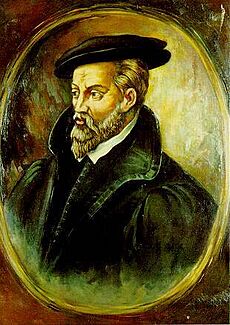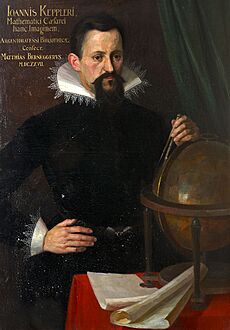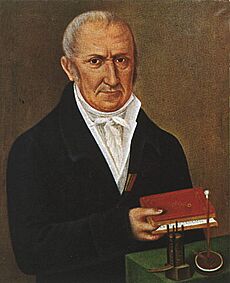Scientist facts for kids
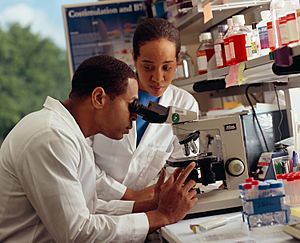
A scientist looking through a microscope
|
|
| Occupation | |
|---|---|
| Names | Scientist |
| Profession | |
|
Activity sectors
|
Laboratory, field research |
| Description | |
| Competencies | Scientific research |
|
Education required
|
Science |
|
Fields of
employment |
Academia, industry, government, nonprofit |
|
Related jobs
|
Engineers |
A scientist is a person who studies how our world works. They are experts in science. Scientists make careful observations. They ask big questions. They do lots of research to find answers.
Scientists often work in labs. These labs can be for governments or companies. They also work for schools and research institutes. Some scientists teach at universities. They help train new scientists. Scientists often do experiments. This helps them learn more about how things really are. They might repeat experiments to be sure.
Contents
History of Scientists
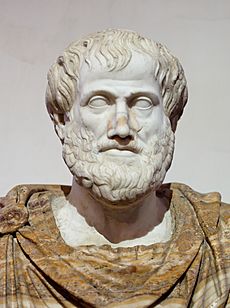
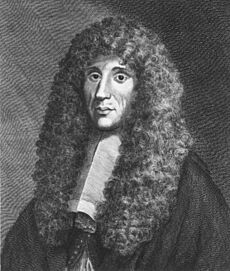
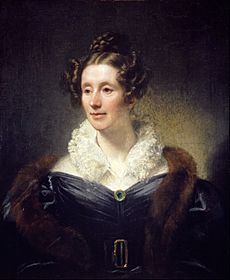
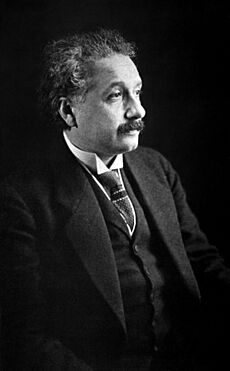
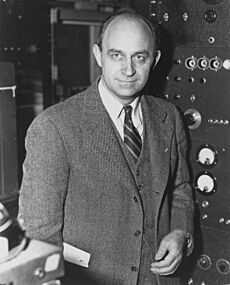
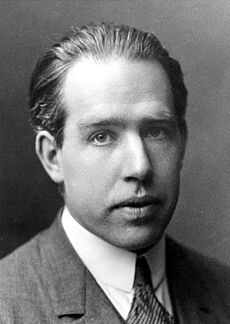

The job of a "scientist" has changed a lot over time. In the past, people who studied nature were called different names. They were often "natural philosophers" or "mathematicians." The idea of a scientist as a specific job really grew in the 1800s.
Early Thinkers
In Ancient Greece, smart people studied nature. They worked on geometry and astronomy. They also looked at plants and animals. These thinkers were often philosophers or physicians. Their ideas spread with the Roman Empire. Later, in the Middle Ages, knowledge was often linked to religious groups. People who studied the stars were called astronomer/astrologers.
Middle Ages and Renaissance
During the Middle Ages, especially in the Islamic Golden Age, many scholars studied different fields. They were often called polymaths. This means they were experts in many areas. For example, Alhazen and al-Biruni studied many sciences.
In the Renaissance, Italians made big science discoveries. Leonardo da Vinci studied fossils and the human body. Galileo Galilei improved the thermometer and telescope. He used them to study the solar system. Isaac Newton invented calculus. He also explained how things move with his laws of classical mechanics. Many scientists who were good at math were also musicians.
The Age of Enlightenment
During the Enlightenment, Luigi Galvani studied "animal electricity." He found that electricity could make frog muscles twitch. This led to new ideas about how our bodies work. Alessandro Volta later built the first electrical battery.
Francesco Redi discovered that tiny microorganisms can cause disease. This was a very important finding for medicine.
The Word "Scientist" is Born
Until the late 1800s, people who studied science were called "natural philosophers" or "men of science."
In 1833, an English thinker named William Whewell came up with the word "scientist." He thought it was needed because science was becoming very specialized. There were chemists, mathematicians, and naturalists. But there was no single word for someone who studied all of science. Whewell suggested "scientist" because it was like "artist" or "economist." At first, not everyone liked the word. But by the late 1800s, it became common in the United States. By the early 1900s, it was used everywhere.
20th Century Discoveries
Marie Curie was a famous scientist. She was the first woman to win a Nobel Prize. She was also the first person to win it twice! Her work led to nuclear energy and cancer treatments. She fought for scientists to share their discoveries freely.
Types of Scientists
Scientists often focus on specific areas of study. Here are some main types:
Natural Science
Natural scientists study the natural world. This includes everything from tiny atoms to huge galaxies.
Physical Science
Physical scientists study non-living things.
|
Life Science
Life scientists study living things.
|
Social Science
Social scientists study human society and how people behave.
|
Formal Science
Formal scientists use logic and math to understand patterns and systems.
|
Applied Science
Applied scientists use scientific knowledge to solve real-world problems.
|
Where Scientists Work
Scientists work in many different places:
- Academic scientists work at universities. They teach and do research.
- Independent scientists work on their own projects.
- Industrial/applied scientists work for companies. They develop new products.
- Citizen scientists are everyday people who help with scientific research.
- Government scientists work for the government. They might do research for public health or defense.
See also
 In Spanish: Científico para niños
In Spanish: Científico para niños
 | DeHart Hubbard |
 | Wilma Rudolph |
 | Jesse Owens |
 | Jackie Joyner-Kersee |
 | Major Taylor |


